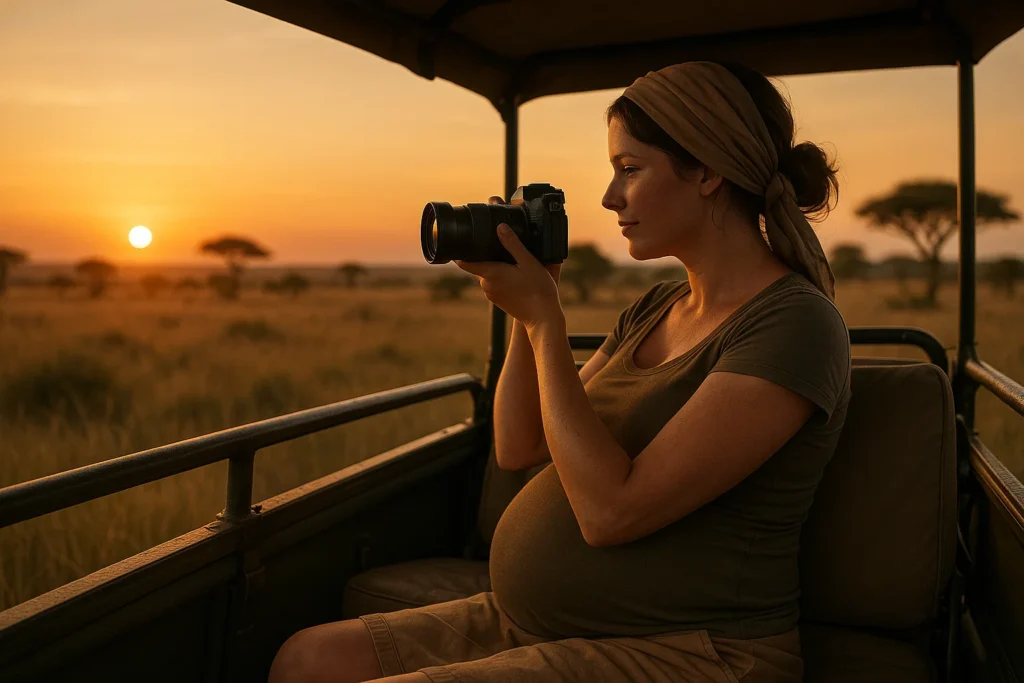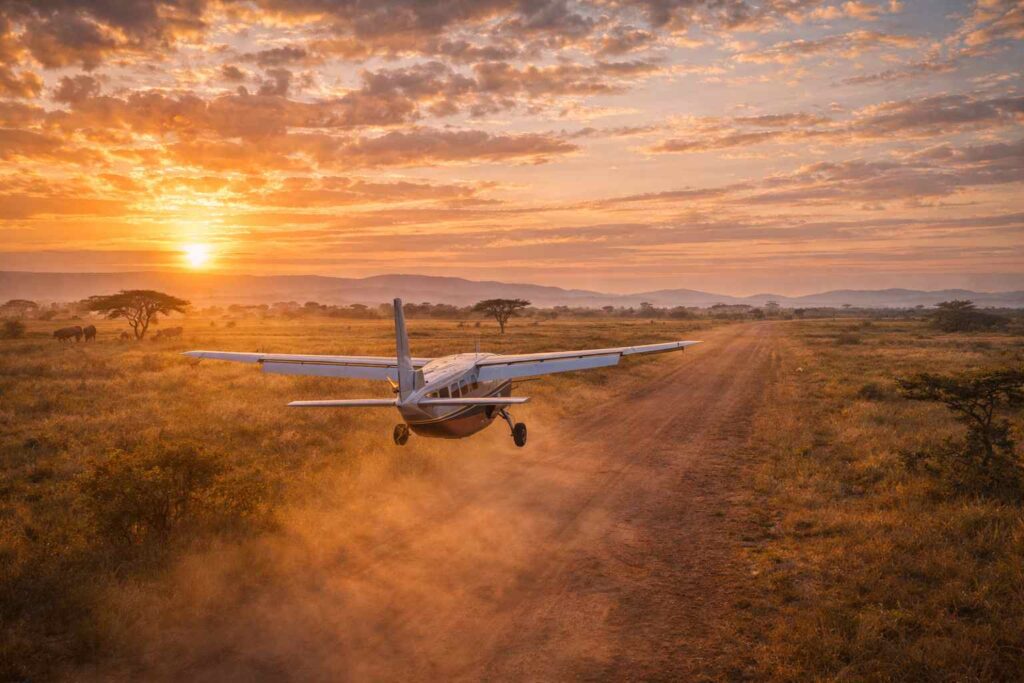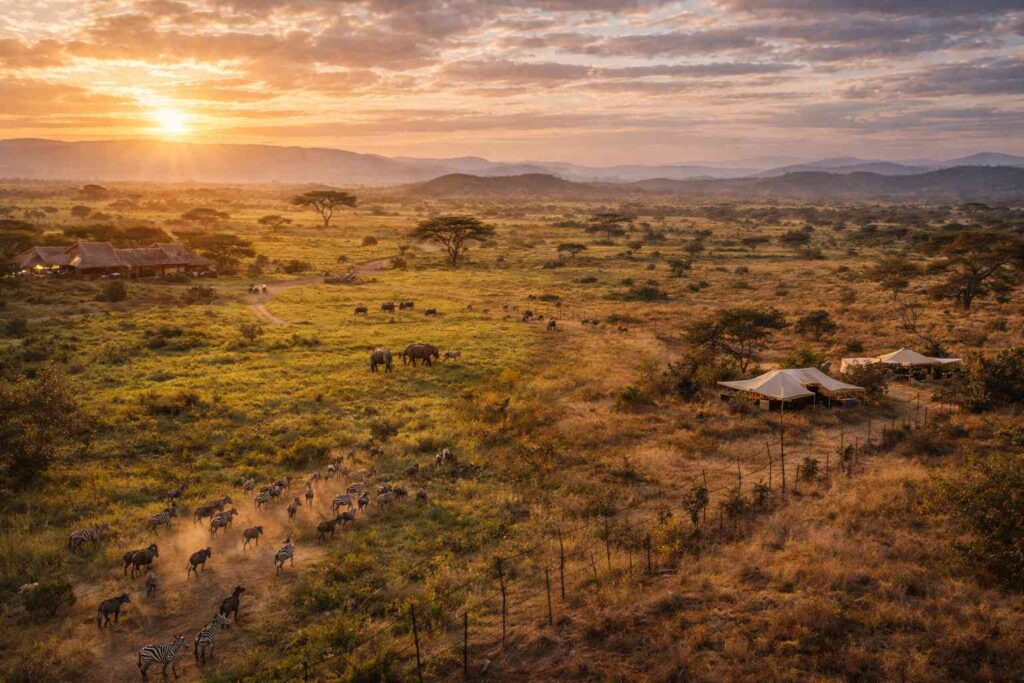A safari is an unforgettable adventure, but pregnancy introduces new considerations—some of which are often overlooked. Expecting parents might wonder if it’s safe to head into the wild while carrying a baby. The good news is: with the right preparation, timing, and destination, a safari can be a serene, enriching experience. But it’s crucial to make informed choices about where and how you travel.
How pregnancy changes the safari experience
Safaris often mean long game drives, bumpy roads, exposure to heat, and remote locations. These elements, while thrilling under normal circumstances, can be more challenging when you’re pregnant. Add in limited access to hospitals, the risk of insect-borne diseases, and restricted physical comfort, and it becomes clear why pregnancy-specific planning is essential.
That doesn’t mean you need to rule out a safari altogether. It just means choosing the right moment in your pregnancy and building your trip around rest, access to care, and gentle exploration.
Choosing the right timing: why the second trimester is ideal
Doctors and experienced safari planners often agree: the second trimester is the safest and most comfortable window for travel. By this time, morning sickness usually fades, and energy levels improve. Your belly is growing, but mobility is still relatively easy. Late pregnancy, in contrast, brings greater fatigue and possible complications that make remote travel riskier.
However, every pregnancy is different. Before you commit, it’s critical to consult with your OB-GYN and discuss your personal health, any previous complications, and how you’re feeling overall.
What about vaccines, malaria, and medical access?
This is where safari planning while pregnant gets more complex. Mosquito-borne diseases—especially malaria—are a major consideration. If you’re planning to visit a malaria-risk area, your doctor will need to weigh whether certain prophylactics are safe for you. In many cases, it’s safer to choose a malaria-free destination altogether.
Vaccines are another factor. Live vaccines like yellow fever are typically not recommended in pregnancy unless there’s a high exposure risk. Others, like hepatitis A or flu vaccines, are usually considered safe. Always speak with a travel medicine specialist who understands both safari conditions and maternal health.
Also, evaluate how close your destination is to quality healthcare. Lodges in remote parks may be hours or even a full day away from the nearest hospital. That’s a serious consideration in case of complications. Prioritize areas with hospital access and make sure your travel insurance covers pregnancy-related issues.
Adapting transport, comfort, and daily routines
Standard safari travel often involves long drives on uneven terrain. While that’s manageable for most travelers, pregnant guests need to go slower. A well-cushioned seat, shorter drive durations, and a guide who understands your needs can make a world of difference.
If your itinerary includes bush flights, double-check cabin conditions and flight restrictions. Most airlines allow travel until about 36 weeks, but small aircraft might have tighter cutoffs or require medical clearance.
Beyond logistics, remember to care for your body: hydration, rest, and shade are your best allies. Heat exhaustion and dehydration can creep up quickly, especially in the later months of pregnancy. Build in recovery time between activities and resist the urge to pack your schedule.
What types of safaris work best during pregnancy?
Not all safaris are created equal. Walking safaris, multi-day treks, and rugged 4×4 expeditions aren’t ideal during pregnancy. But game drives in private reserves, scenic bush stays near towns with good hospitals, or wellness-focused lodges can offer a more balanced experience.
Private reserves are particularly pregnancy-friendly. They tend to offer more flexible schedules, smoother terrain, and custom experiences. You’re not on a tight timetable and can return early from a game drive if needed.
In contrast, ultra-remote national parks with limited road access and no medical infrastructure should probably wait for a future trip with your child.
What to pack and how to prepare
Rather than overwhelming yourself with bulky supplies, focus on comfort and health essentials: breathable clothes, pregnancy-safe mosquito repellent, supportive shoes, prenatal vitamins, hydration aids, and snacks. Bring any prescribed medications, along with a doctor’s letter stating your fitness to travel and outlining emergency protocols.
Compression socks and small pregnancy pillows can help on long drives or flights. And don’t forget your documentation: travel insurance policy, OB-GYN contact info, and copies of your medical records can be lifesavers in a pinch.
Listening to your body—and the wild
One of the best things about safari while pregnant is the natural rhythm of the wild. Early mornings, quiet afternoons, slow sunsets—it aligns beautifully with the kind of pace pregnancy encourages.
Stay present with how you feel each day. There’s no pressure to chase every game drive or activity. Rest when you need to, ask questions, and adjust the plan. A good guide and a thoughtful camp will accommodate you gladly.
Final thoughts
Yes, it is possible to enjoy a safari while pregnant—but the key is smart planning. Focus on safety, comfort, medical access, and flexibility. Choose the right destination, travel in your second trimester if possible, and don’t hesitate to slow down.
A well-planned safari during pregnancy can be deeply restorative—connecting you to nature, your partner, and the journey ahead as you prepare to welcome new life.
FAQs
Generally not advised. The risks to both mother and baby are high. Choose malaria-free regions when possible.
Choose lodges with access to hospitals within a few hours’ drive. Always carry insurance that covers pregnancy emergencies.
It’s usually discouraged, especially in the third trimester. Prioritize comfort and stability.
Ask about distances to medical care, vehicle comfort, flexibility of drives, and whether other pregnant guests have visited.
Yes—discreetly but clearly. It helps them adjust the schedule and respond appropriately if needed.






